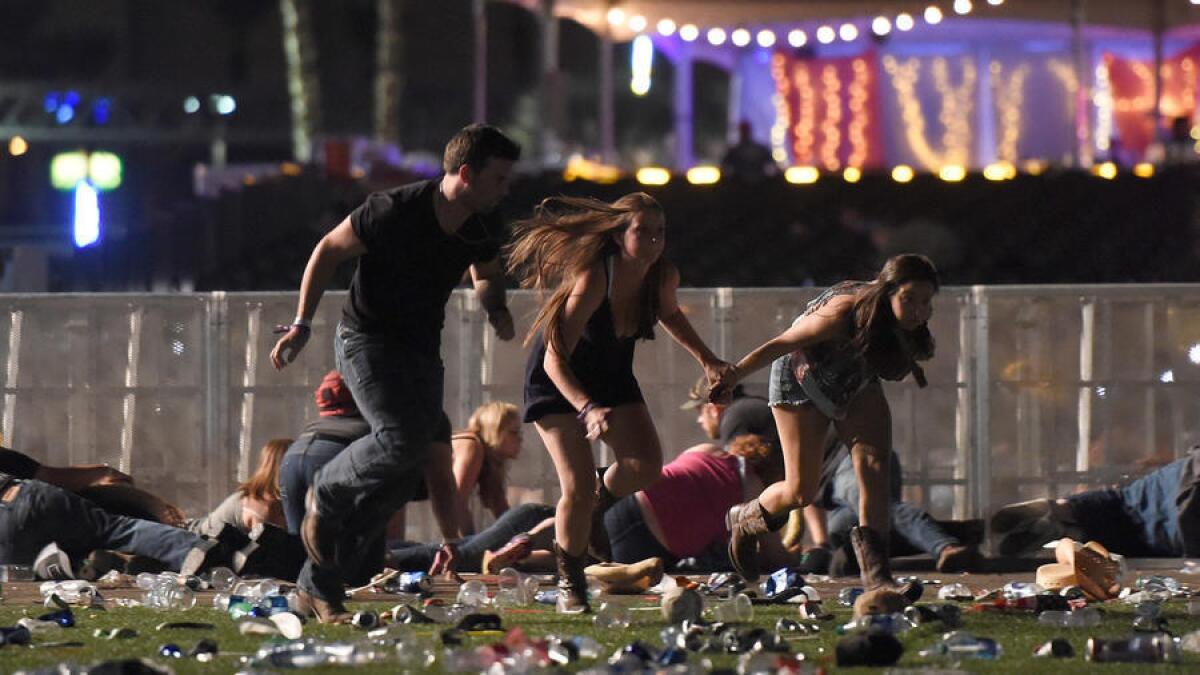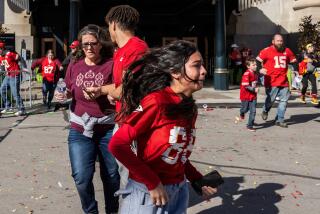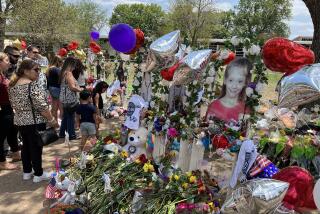9 books to help us understand mass shootings

America is reeling from the mass shooting at a country music concert in Las Vegas on Sunday night, which left at least 58 people dead and more than 500 others injured.
The massacre is the deadliest mass shooting in modern U.S. history, and much remains unknown at this point, including the motive of the shooter, Stephen Paddock, who committed suicide after the attack.
Read the latest news on the Las Vegas shooting and its victims »
In times of tragedies like these, readers often look to literature for answers, even when they know that some things are beyond explanation. Here are nine books, both fiction and nonfiction, about the victims and perpetrators of mass shootings in North America.
“Columbine” by Dave Cullen (Twelve). Journalist Cullen’s detailed nonfiction account of the 1999 mass shooting at Columbine High School in Colorado, published in 2009, shows how much the news reports immediately following the shooting got wrong. The book takes a deep look at the victims of the shooting as well as the perpetrators, Eric Harris and Dylan Klebold.
“Gabby: A Story of Courage, Love and Resilience,” by Gabrielle Giffords and Mark Kelly with Jeffrey Zaslow (Scribner). The former Arizona congresswoman, who survived an attack in 2011 that left six others dead, writes about her long recovery after being shot in the head by Jared Lee Loughner. The memoir is co-written by her husband, Kelly, the retired astronaut and Naval officer.
“A Sniper in the Tower: The Charles Whitman Murders” by Gary M. Lavergne (University of North Texas Press). First published 20 years ago, Lavergne’s book remains the definitive account of the 1966 University of Texas tower shooting in Austin, in which sniper Charles Whitman killed 16 people and an unborn child before being shot dead by police officers.
“Choosing Hope: How I Moved Forward from Life’s Darkest Hour” by Kaitlin Roig-DeBellis with Robin Gaby Fisher (G.P. Putnam’s Sons). The 2012 massacre at Sandy Hook Elementary in Newtown, Conn., killed 20 children and six adults. First-grade teacher Roig-DeBellis’ memoir describes how she saved the lives of her students and how she dealt with the aftermath of the tragedy.
“No Right to Remain Silent: What We’ve Learned from the Tragedy at Virginia Tech” by Lucinda Roy (Broadway). Roy was the chair of Virginia Tech’s English department when she sought counseling for a troubled student named Seung-Hui Cho. Cho went on to murder 32 people at the university; Roy’s book urges changes in the way potentially dangerous students are handled by college administrators.
“Vernon God Little” by D.B.C. Pierre (Grove). The controversial debut novel from Pierre, an Australian author raised in Mexico, deals with a teenage boy in Texas who runs from the law after his best friend kills several of their classmates. The book won the prestigious Man Booker prize in 2003.
“Project X” by Jim Shepard (Knopf). Shepard’s slim 2004 novel follows Edwin and Flake, two unpopular eighth-grade students whose alienation from their classmates leads to a horrible act of revenge.
“We Need to Talk About Kevin” by Lionel Shriver (Counterpoint). Shriver’s 2003 Orange Prize-winning novel, adapted into a 2011 film starring Tilda Swinton, tells the story of a mother coming to grips with the actions of her teenage son, who killed several students and staff members at his New York high school.
“A Mother’s Reckoning” by Sue Klebold (Crown). Twenty-five years after the Columbine killings, Dylan Klebold’s mother, Sue, published a memoir about the son she knew, the son she didn’t know, her own regret and terrible guilt, and what she as a parent might have done to prevent the tragedy.
More to Read
Sign up for our Book Club newsletter
Get the latest news, events and more from the Los Angeles Times Book Club, and help us get L.A. reading and talking.
You may occasionally receive promotional content from the Los Angeles Times.






